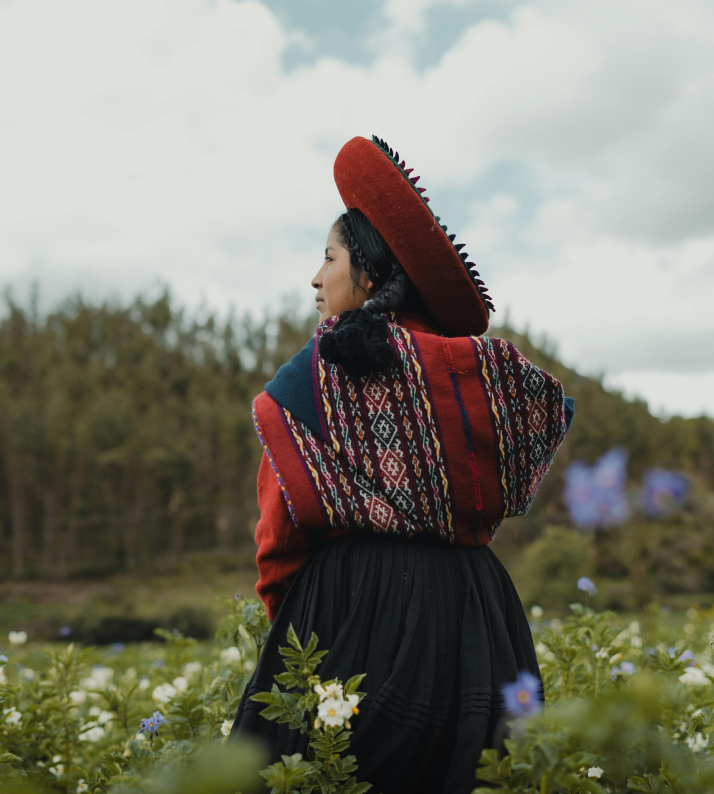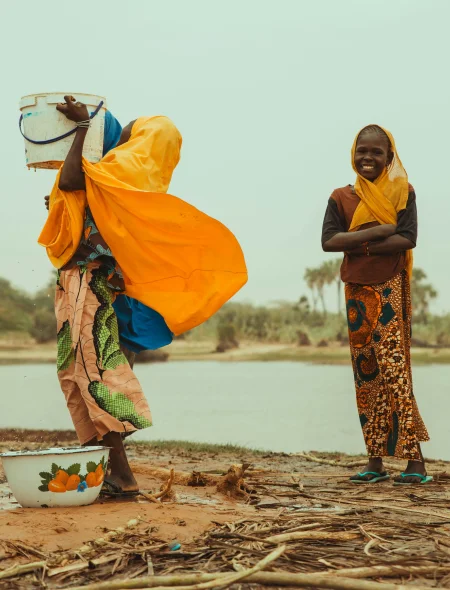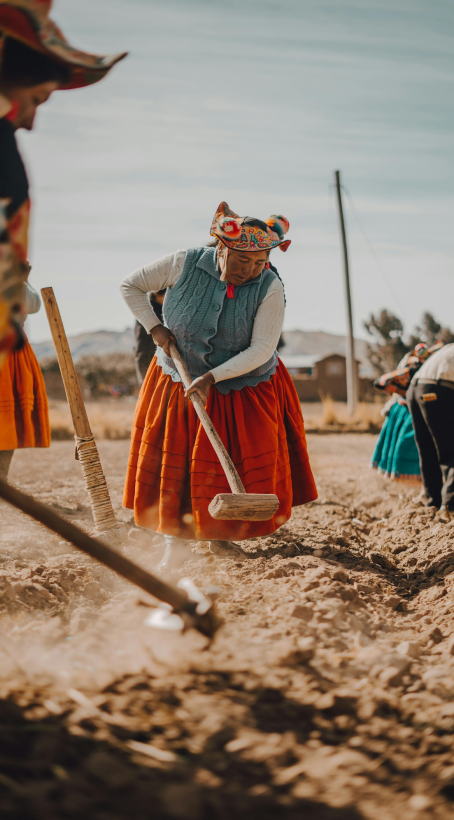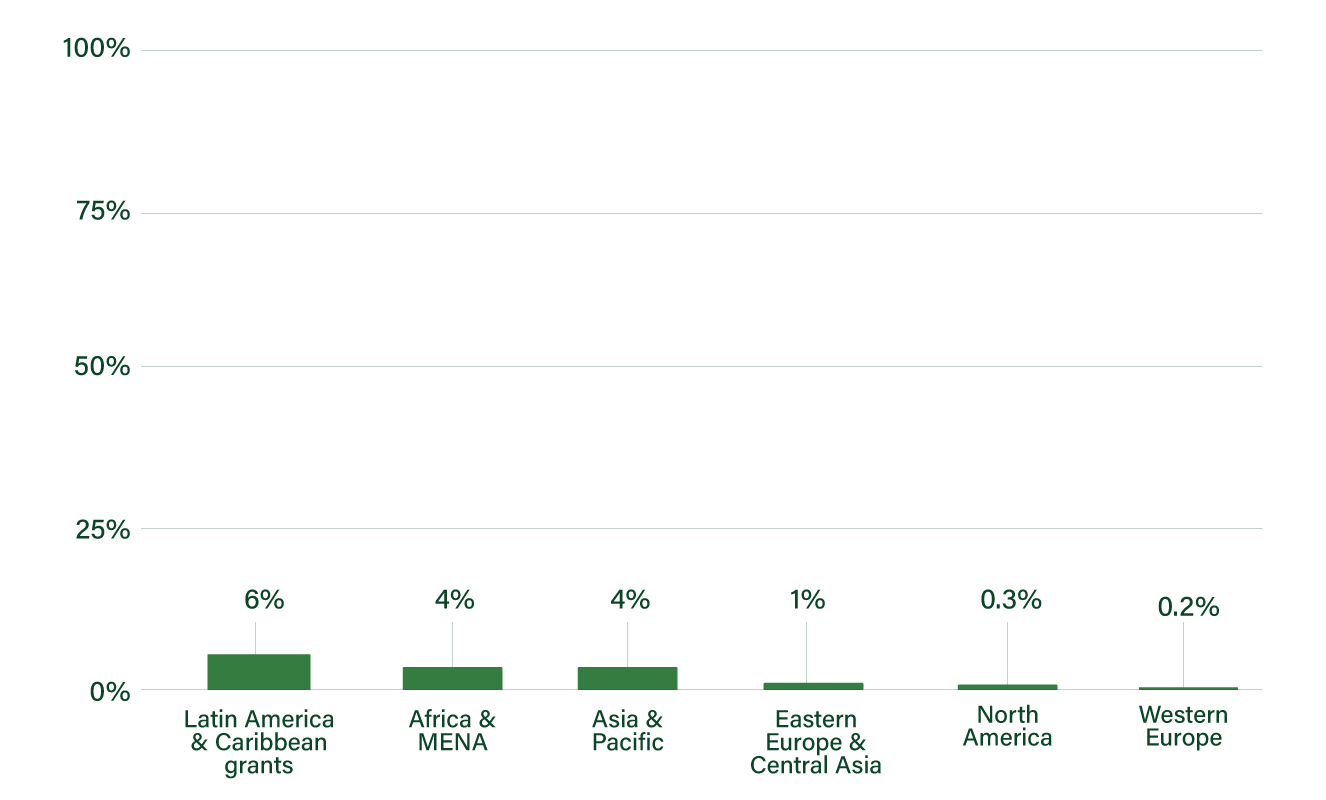



Seeds for Harvest: Funding for gender, climate, and environmental justice

Agents of change. Women, gender-diverse groups, and Indigenous peoples, drive political change within their communities, countries, and regions. They lead the fight for the wellbeing of their lands and territories and stand up to governments and corporations in defense of life—protecting land, oceans, biodiversity, communities, and natural resources.
Advancing gender justice and equality is essential for increasing the agency and power of women and gender-diverse groups as they create and implement climate and environmental justice strategies, alternatives, and solutions at both local and global levels.
Unfortunately, these groups are underrepresented and underfunded.

Seeds for Harvest. Global Greengrants Fund, Prospera International Network of Women’s Funds, the Human Rights Funders Network (HRFN), and the Global Alliance for Green and Gender Action (GAGGA) latest report (1) spotlights the funding trends of human rights-focused private and public funders and (2) provides a powerful understanding of the state of funding for gender, climate, and environmental justice work.
Five years after publishing Our Voices, Our Environment: The State of Funding for Women’s Environmental Action, our new report is grounded in a renewed sense of hope, resilience, and possibility while underscoring the significant need for and lack of funding. Through data analysis, case studies, and the identification of trends and opportunities, we showcase the funding landscape for gender, environmental, and climate justice movements and provide valuable new insights into the current funding landscape:
- Only 1.2% ($50.2M USD) of the $4.1B USD in human rights funding for 2019, and just 5% (1,339) of nearly 27,000 grants, considered gender, climate, and environment.
1.2%
$50.2M USD

- USD destined to gender, climate and environment
5%
1,339 grants

- Grants to gender, climate and environment
- Funding for initiatives addressing gender, climate, and environment remained low across all regions, ranging from just 1% of human rights grant dollars for Eastern Europe and Central Asia to 6% for Latin America and the Caribbean.

- % of Funding in Each Region allocated to Gender and Environment
- Public foundations awarded the majority of human rights grants (91% of grants, totaling $18M USD) focused on gender, climate, and environment. Among these grants, women’s and feminist funds awarded 33%, Global Greengrants Fund contributed 45%, and other public foundations provided the remaining 13%.

-
45%
by Global Greengrants Fund
-
33%
by women’s and feminist funds
-
13%
by other public foundations
- Global Greengrants Fund, GAGGA’s channeled grants and Prospera’s own data shows that their combined annual grantmaking at this intersection exceeded $15M USD each year from 2019 to 2021, and supported over 4,000 activists, groups, and organizations fighting for gender and climate justice.

- activist
- groups
- organizations
- Private foundations provided the majority of human rights funding (61% of total dollars, or $31M USD) focused on gender, climate, and environment.
- Global Greengrants Fund, women’s, and feminist funds contributed 78% of all human rights grants at the intersection of gender, climate, and environment in 2019.
- The collaborative ecosystem of feminist, women’s rights, and environmental justice funds is capable and ready to receive at least $100M USD annually for gender, climate, and environmental justice action and leadership to support activists in countries and regions particularly impacted and neglected.

Our main findings indicate needs and opportunities for increased connection and cross-pollination between feminist practices and environmental approaches among gender, climate, and environment organizations and funders, aiming to advance toward a more intersectional approach.
There is an enabling environment and heightened potential for women’s, feminist, environmental, climate, and human rights funds to collaborate and strengthen the funding ecosystem at this intersection, develop common narratives, and advance joint political framings.
This can help secure greater financial commitments and increase the impact of feminist climate justice work.
Climate emergencies are most deeply experienced and ignored in the Global South and East. It is crucial to collectively pay attention to and drive resources to activists in countries and regions directly impacted and neglected.
Remarkably, this is also the most effective, impactful, and sustainable way of responding to climate collapse —building systems of resilience, accountability, and longevity from the ground up.
The established resourcing mechanisms for system change include GAGGA, Socio-Environmental Funds of the Global South, Clima, and the Funder Learning and Action Co-Laboratory, of which Prospera and Global Greengrants Fund are active members. Further, collaborations between public funds resourcing at this intersection include MADRE, The Fund for Global Human Rights, Thousand Currents, and American Jewish World Service.

Recommended Actions for Funders:
1. Mobilize multi-year, flexible resources to those working at the intersections of gender, environmental, and climate justice. By increasing grantmaking dollars and supporting the public foundations and networks funding feminist and environmental justice movements, private foundations can make significant contributions to ensuring local, community-owned solutions are effective in stewarding our planet.
2. Eradicate climate and gender justice funding silos, and collaborate for the long-term future of our shared planet. Women’s, feminist, environmental, climate, and human rights funds need to collaborate and strengthen the funding ecosystem at this intersection, develop common narratives, and advance joint political framings in order to secure greater financial commitments and increase the impact of feminist climate justice work globally.
3. Invest in feminist climate movement infrastructure and support the creation of spaces for mid-level organizations, groups, and activists to gather, think, research, and create agendas into the future that bring adequate analyses and strategies for us to engage fully and together. An enabling environment created by feminist, socio-environmental justice funds, and public foundations is ready to absorb millions of dollars collaboratively in order to move resources to the right places and in trust-based, legitimate ways.
4. Convene dialogues between activists, academics, funders, civil servants, artists, and healers who are doing the work to be able to exchange knowledge, learnings, and experiences, and to develop common strategies that can build on collective power for change.
5. Recognize, support, and learn from and with Indigenous Peoples, including Indigenous women, and acknowledge the diversity of approaches, perspectives, and traditional knowledge they bring in defense of their territories and biodiversity for the wellbeing of all.